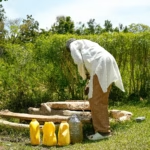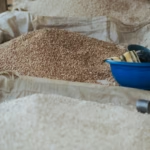
In Africa, agriculture is the backbone of many economies, employing up to 60% of the continent’s workforce. Among these workers, a significant portion are women. Yet, despite their active roles in farming, processing, and trade, women in African agriculture often face systemic inequalities that limit their full participation and recognition in the industry.
Bridging the gender gap in agri-business is no longer just a moral imperative—it’s an economic one. Supporting women in African agriculture not only uplifts families and communities but also strengthens food systems, improves productivity, and fosters inclusive growth. In this blog, we’ll explore the barriers women face, the impact of their participation, and the initiatives making a difference across Africa.
The Essential Role of Women in African Agriculture
From planting and harvesting to trading at local markets and managing small-scale processing businesses, women in African agriculture are involved in nearly every stage of the value chain. In some regions, women make up more than 70% of the agricultural labor force.
However, their contributions are often undervalued. Women frequently work without formal recognition, land ownership rights, or access to financial services. These limitations have long hindered their ability to scale their businesses, make long-term investments, or become active participants in export opportunities.
Recognizing and supporting women’s roles is a crucial step in building equitable and sustainable agricultural systems across the continent.
Barriers to Gender Equality in Agriculture
To understand why gender equity is so critical in African agri-business, we must first address the key challenges facing women in the sector:
- Lack of Land Ownership
In many African countries, customary land rights exclude women from owning or inheriting land. Even when women are the primary farmers, they may lack control over the land they cultivate, limiting their ability to secure loans or make improvements. - Limited Access to Credit
Financial institutions often require collateral—usually land—which women typically do not possess. This leaves many female farmers and entrepreneurs without access to formal loans, credit lines, or insurance that could help them grow their operations. - Exclusion from Training and Extension Services
Agricultural training and government extension programs are often directed toward men. As a result, women in African agriculture are less likely to benefit from new techniques, innovations, or technologies that could enhance their productivity. - Market Access Barriers
Women face difficulties entering formal markets, especially export channels. They may lack transportation, market information, or the networks needed to scale up their businesses. - Social and Cultural Norms
Traditional roles often place heavy domestic responsibilities on women, reducing the time and energy they can devote to farming and agribusiness. These societal expectations further constrain their economic potential.
Why Empowering Women in African Agriculture Matters
Investing in women farmers has a powerful ripple effect. Numerous studies show that when women are supported in agriculture, their productivity increases, food security improves, and families are better cared for.
Here are just a few reasons why supporting women in African agriculture is vital:
- Improved Yields and Efficiency: When women receive the same resources as men, their crop yields increase by up to 30%.
- Poverty Reduction: Increasing women’s income has a direct impact on reducing household poverty.
- Better Nutrition and Education: Women tend to reinvest more in their families, leading to improved health and education outcomes.
- Economic Growth: Empowering women boosts overall economic productivity and contributes to national development goals.
Initiatives Making a Difference
Across Africa, several organizations and initiatives are working to close the gender gap in agriculture. These programs focus on providing access to land, training, finance, markets, and leadership opportunities.
- Land Rights Programs
NGOs and advocacy groups are working with governments to revise land tenure laws and promote women’s land ownership through legal reforms and education campaigns. - Microfinance and Cooperatives
Women-focused savings groups and cooperatives are helping women in African agriculture gain access to credit and pool resources to scale their ventures. These grassroots models also foster collective bargaining and community support. - Training and Mentorship
Agricultural extension programs are being tailored to meet the needs of female farmers. These include training in modern farming techniques, climate-resilient practices, and post-harvest processing. - Export Support and Certification
Some export organizations, including ethical trading initiatives, prioritize sourcing from women-owned farms or cooperatives. These programs help women meet international standards and connect with global buyers. - Public-Private Partnerships
Companies like Ahar Group are playing a key role by integrating gender-sensitive approaches in their sourcing and supply chains. Through training, fair contracts, and direct engagement with women producers, they are helping ensure that women in African agriculture are not left behind.
The Way Forward
Closing the gender gap in African agriculture requires a concerted effort from all stakeholders—governments, private companies, NGOs, and the international community. Here are a few key steps that can drive long-term change:
- Policy Reforms: Governments must implement and enforce policies that promote women’s rights to land, finance, and education.
- Inclusive Extension Services: Agricultural support services should be accessible to women and designed with their specific needs in mind.
- Gender-Sensitive Data: Collecting and analyzing gender-disaggregated data helps identify gaps and measure progress.
- Private Sector Engagement: Exporters and supply chain actors must commit to fair and inclusive practices that empower women.
Conclusion
Women in African agriculture are not just contributors—they are change-makers. Their hard work, resilience, and entrepreneurial spirit are vital to the continent’s food security, economic growth, and sustainable development.
By bridging the gender gap, we unlock the full potential of African agriculture. It’s not just about fairness—it’s about building a stronger, more inclusive agri-business ecosystem that benefits everyone. From rural farms to global markets, when women thrive, communities prosper.
Empowering women in African agriculture is one of the smartest investments we can make for Africa’s future.











Add comment